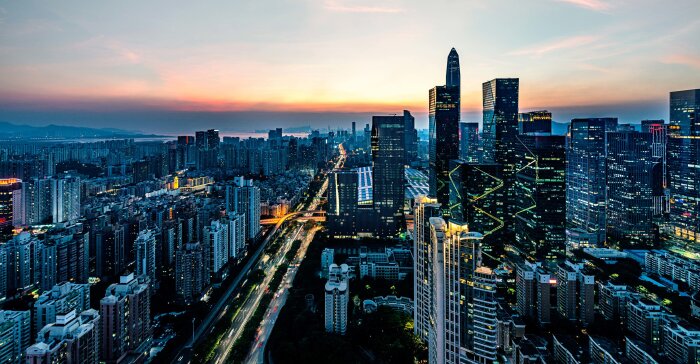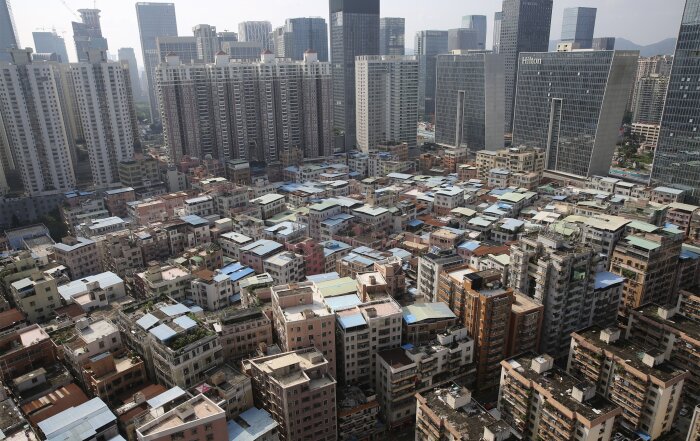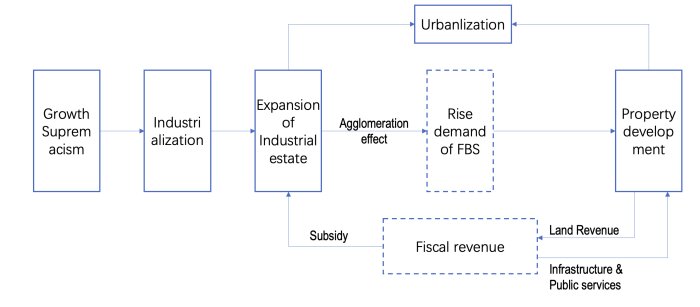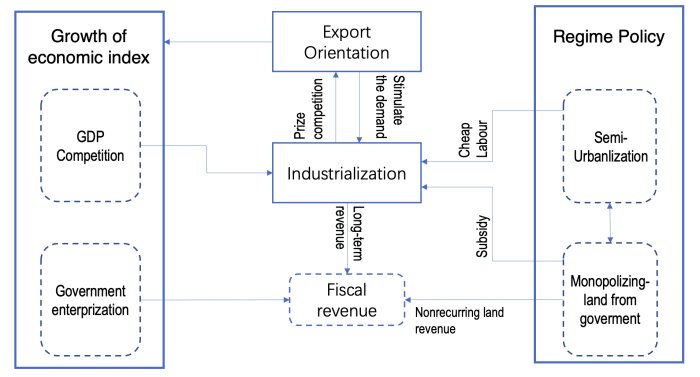“城中村”(urban villages) describes an urban area which is village landscape inside the urban scope.
After Economy reform in 1980, China pursues Chinese Neoliberalism. Under the instruction of Chinese Neoliberalism, Chinese urban development comes through a path of growth-supremacism. Municipal governments gain their development capital from monopoly land and reinvest into the industrial department. As a result of growth-supremacism, the growing speed of cities is stunning. Numerous skyscrapers emerge in Chinese cities.
Simultaneously, there is some field still remain its villages landscape inside the city, due to the “户口”(hukou) system. Hukou system is a unique Chinese residency system. Hukou system divides Chinese as two parts, city residency and village residency. In land rights part, village residents can own their land which city residents cannot. Owing to rapid urban development speed, cities take land from villages, but the residents of villages not yet transfer to city resident in the Hukou system. Therefore, they can own their land inside cities.
Original inhabitants built up residency building providing to migrants. Due to the profit-seeking rent behavior, urban villages become chaotic and problematic. Property market seeking for demolishing renewal project while the government is advocating for comprehensive renewal.
Researcher(s): Xinjue Wu
-
 Shenzhen
Shenzhen -
 Urban villages
Urban villages -
 Comprehensive renewal
Comprehensive renewal -
 Hukou system
Hukou system